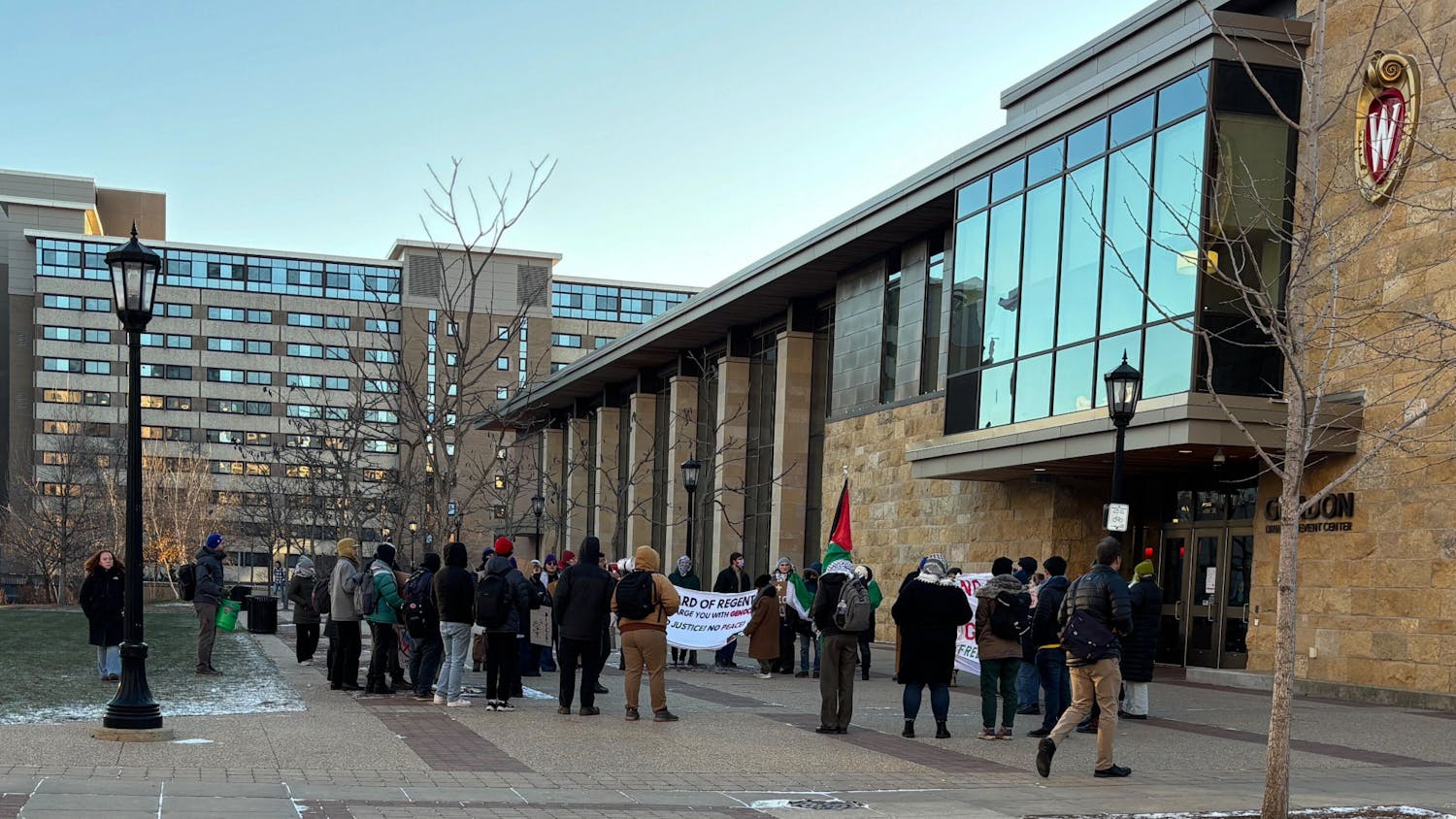There are noble reasons to be proud of being a Badger. The UW-Madison has a rich legacy of student activism. We protested during the Vietnam Era in the ’60s. We fought against attacks on collective bargaining two winters ago. In the ’70s, we led the charge against apartheid.
Many of us are probably unfamiliar with apartheid. It was ending in the years around our birth, before we could be criticized for not paying proper attention to worldly affairs. Apartheid was an extremely caustic, offensive and immoral form of government in South Africa which was explicitly based on the premise of white minority rule. Though the country’s economy was utterly dependent on cheap black migrant labor, the government had made it illegal for those classified as “black” to own property anywhere but the very meanest stretches of land in the region. The system was designed to keep Africans down and dependent. Black schools got one-sixth of the amount of funding as white schools to teach six times as many students. The apartheid government imprisoned or exiled those who organized against it. The movement intensified, both within South Africa and internationally when the apartheid government shot 69 unarmed protesters in a 1960 event known as the Sharpeville Massacre. Most of those killed were shot in the back.
Meanwhile, 8,700 miles away in Madison, our Badger fore-bearers realized that they too were implicated in the perpetuation in this most unjust of governments. The university had millions of dollars of its endowment and pension money invested in companies with ties to the South African regime. Therefore, Badgers reasoned, students in Madison were not innocent of the atrocities being committed so far away.
There are moral dimensions to financial relationships. We vote with our dollars. In this system of global exchange, when you buy a commodity, like a sweatshirt manufactured in a sweatshop in China or a computer made from materials obtained through war and conflict in the Congo, you are reinforcing the social relationships that go into making that product. Investing in a company that oppresses others carries an even more direct burden of responsibility. With an investment you are purchasing part ownership in the injustice and, even more, are hoping to profit off of it. Divestment, therefore, isn’t activism. It doesn’t actively seek to end injustice. It seeks instead to cease passively enabling the injustice in the first place. Student anti-apartheid organizers, rightly, sought to cleanse their own consciences first.
Students, it seems, are activists by nature. We’re hot blooded. Our minds, already aflame with learning and scholarship, explode at the injustices in the world we seem to perceive so much clearer than older generations. We are just coming into our own as individuals, as leaders, as wide-awake people in a world that is always changing and which seems to offer every new generation a fresh fight, a new unprecedented struggle. We’ve got enough adolescent energy left to be passionate, spontaneous, irreverent; enough youthfulness to perceive the urgency of what we are about. But we’re adult enough to be aware of the consequences of our own action or inaction, to think critically and problem solve.
In other words, no one in history has been as well equipped as you or I, or has had such an interest or imperative, to take action on climate change. We know what’s going on, we know what causes it and we understand the implications in a way even those professors and celebrities who explained it to us can’t. We know that, like apartheid, climate change will not wreak the same damage upon everybody. It will fall upon humanity’s shoulders unevenly. Those in the world who are the most vulnerable will be the most affected. They may lose their homes like many have due to Hurricane Sandy. They may lose their livelihoods like many farmers did in Wisconsin during this summer's drought. Many lives will be lost. Climate change will put in place, and is putting in place, a world of separation between the lives of our parents and the lives of our children; it will enforce a new, harsh ecological reality propped up by our economic institutions.
Ultimately, the students at UW-Madison who organized against apartheid won. By 1978 the City of Madison, Dane County and the University of Wisconsin had severed all corporate ties with South Africa. The UW was the largest institution, before or after, to divest from the regime. And, in the early ’90s, as we were being born, apartheid ended.
However, UW is now invested in climate change. Our professors’ well-deserved pensions are paid partially from the revenues of the fossil fuel industry. Accordingly, any positive activism we do surrounding climate change, sustainability or environmentalism must be accompanied by a crucial push for divestment or else we’re simply betting against ourselves. We just opened an Office of Sustainability. We have a wide variety of departments, classes and programs which highlight the dangers and moral hazards of climate change. As an institution, we must put our money where our mouth is.
Unity College and Hampshire College, both small New England liberal arts colleges, have been the first in the country to divest from the fossil fuel industry. Within the past few days, a student government-sponsored referendum at Harvard had 73 percent approval to divest. And students at UW-Madison are once again entering the fray, answering the call. A new group has formed on campus called Climate Action 350. I recently attended one of its meetings and I can tell you that the group has all the bright-eyed determination and grit it will take to get this movement off the ground. UW-Madison students were part of a long struggle which eventually was successful in toppling apartheid. Join the struggle to cut ties with the backward fossil fuel industry, as well.
Noah is a sophomore majoring in history of science and community and nonprofit leadership. Please send all feedback to opinion@dailycardinal.com.





